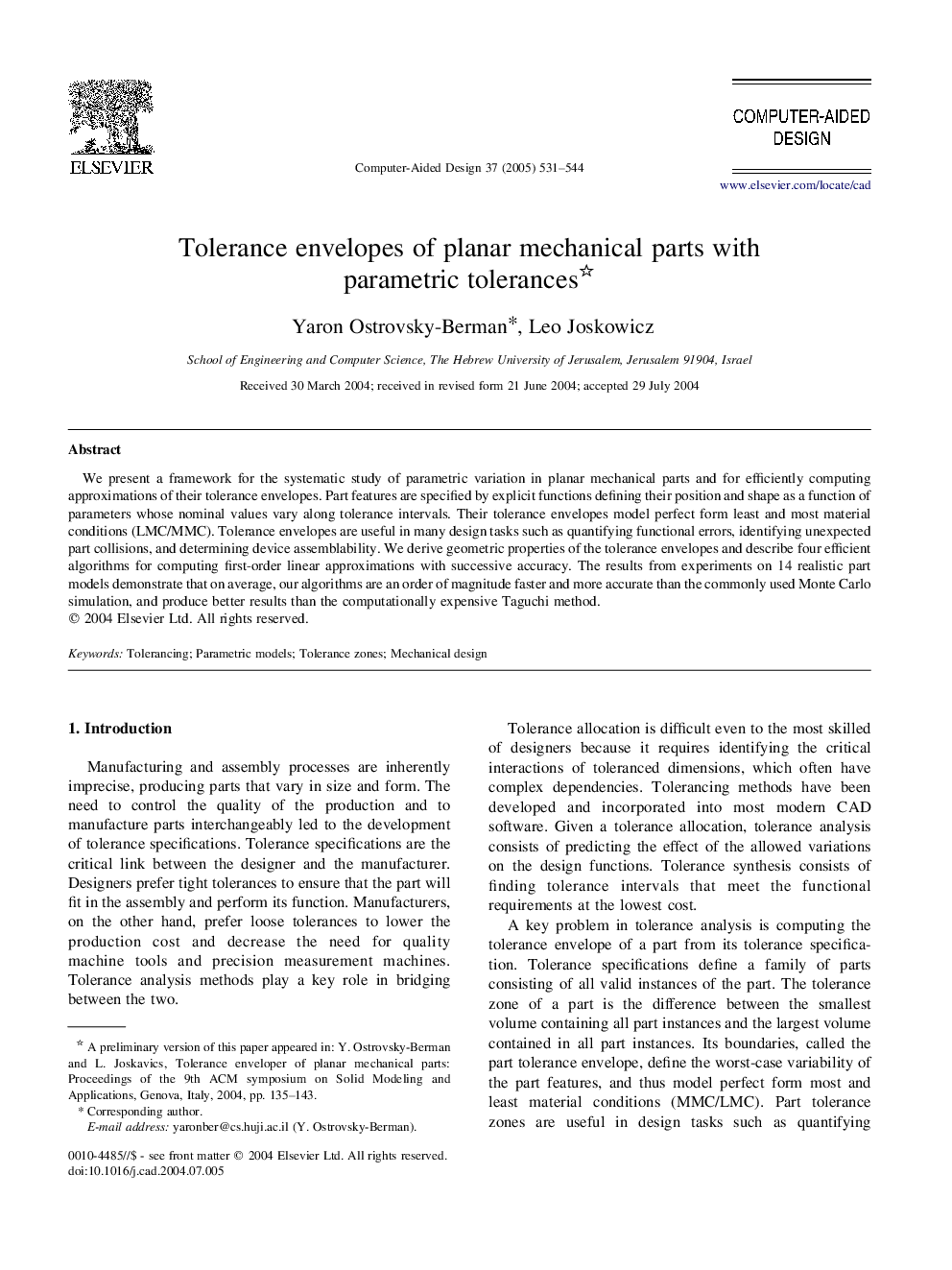| Article ID | Journal | Published Year | Pages | File Type |
|---|---|---|---|---|
| 10334972 | Computer-Aided Design | 2005 | 14 Pages |
Abstract
We present a framework for the systematic study of parametric variation in planar mechanical parts and for efficiently computing approximations of their tolerance envelopes. Part features are specified by explicit functions defining their position and shape as a function of parameters whose nominal values vary along tolerance intervals. Their tolerance envelopes model perfect form least and most material conditions (LMC/MMC). Tolerance envelopes are useful in many design tasks such as quantifying functional errors, identifying unexpected part collisions, and determining device assemblability. We derive geometric properties of the tolerance envelopes and describe four efficient algorithms for computing first-order linear approximations with successive accuracy. The results from experiments on 14 realistic part models demonstrate that on average, our algorithms are an order of magnitude faster and more accurate than the commonly used Monte Carlo simulation, and produce better results than the computationally expensive Taguchi method.
Related Topics
Physical Sciences and Engineering
Computer Science
Computer Graphics and Computer-Aided Design
Authors
Yaron Ostrovsky-Berman, Leo Joskowicz,
